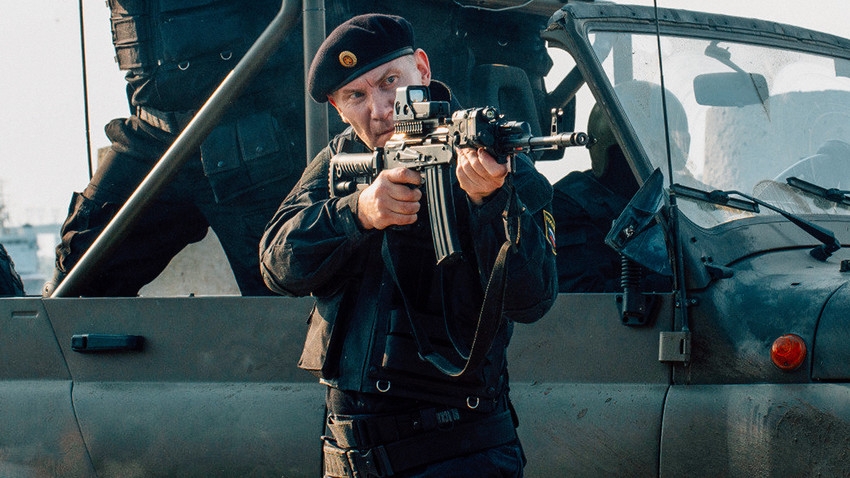
The stereotype of the Russian bad guy in Hollywood is dying. At least, that’s what the Editor-in-Chief of the Russian version of The Hollywood Reporter (THR), Maria Lemesheva, boldly proclaimed in 2017: "I've seen… in the movie with Angelina Jolie and Johnny Depp ('The Tourist') where a Russian general was some sort of a bad guy, the audience was laughing while watching the film. Our public always has a cheerful and philosophical attitude towards such movies. And we also take it as irony. But I think that tendency to portray Russians as the bad guys is dying," she told the Indo-Asian News Service. I gather that these remarks were meant to downplay one of the most enduring creative techniques in Hollywood history. To say that I was taken aback by them is an understatement.
READ MORE: What's behind the West's stereotyping of Russian women?
Apparently, because Russians are so giddy and deep with their understanding of other people’s motives - or because we can take a punch and treat it ‘philosophically’ - it makes no sense to treat Hollywood attacks on an entire culture with any real seriousness? The richest film industry in the world doesn’t just make movies for the pleasure of it. You may yourself have participated in many a conversation online where somebody says “it’s just humor”, “it’s just a movie” or “it’s just a joke.” First of all, nothing is “just” anything if there is massive money involved. Do yourself a huge favor and forget the poisonous notion that entertainment is just made for the hell of it. Money has to serve a purpose.
Hollywood’s ties to the Pentagon, the CIA, and American foreign policy interests, are absolutely direct, and no effort has ever been made to hide the fact. It has been proven time and again - just Google it.
A recent story from 2017 points to a Freedom of Information request that yielded documents exposing no less than 1,800 cases of movies and TV series that had direct involvement from Washington. While it is hardly surprising that any government apparatus would seek to present itself in the best possible light, the United States takes its control of entertainment and media to an absolutely fanatical level. Not just TV and Hollywood, but morning shows… Oprah, Jay Leno, you name it. Not a word that is uttered on NBC, HBO or any of those networks doesn’t meet Washington’s rigorous standards of what is permissible.
On the surface, we might see millions of dollars in weapons and tech on display in a Michael Bay movie. But on the subliminal battlefield, Hollywood really gets to work, and is able to single-handedly prepare the American nation for a set of attitudes - sometimes amplifying them, and at others, acting as predictive programming for what’s to come.
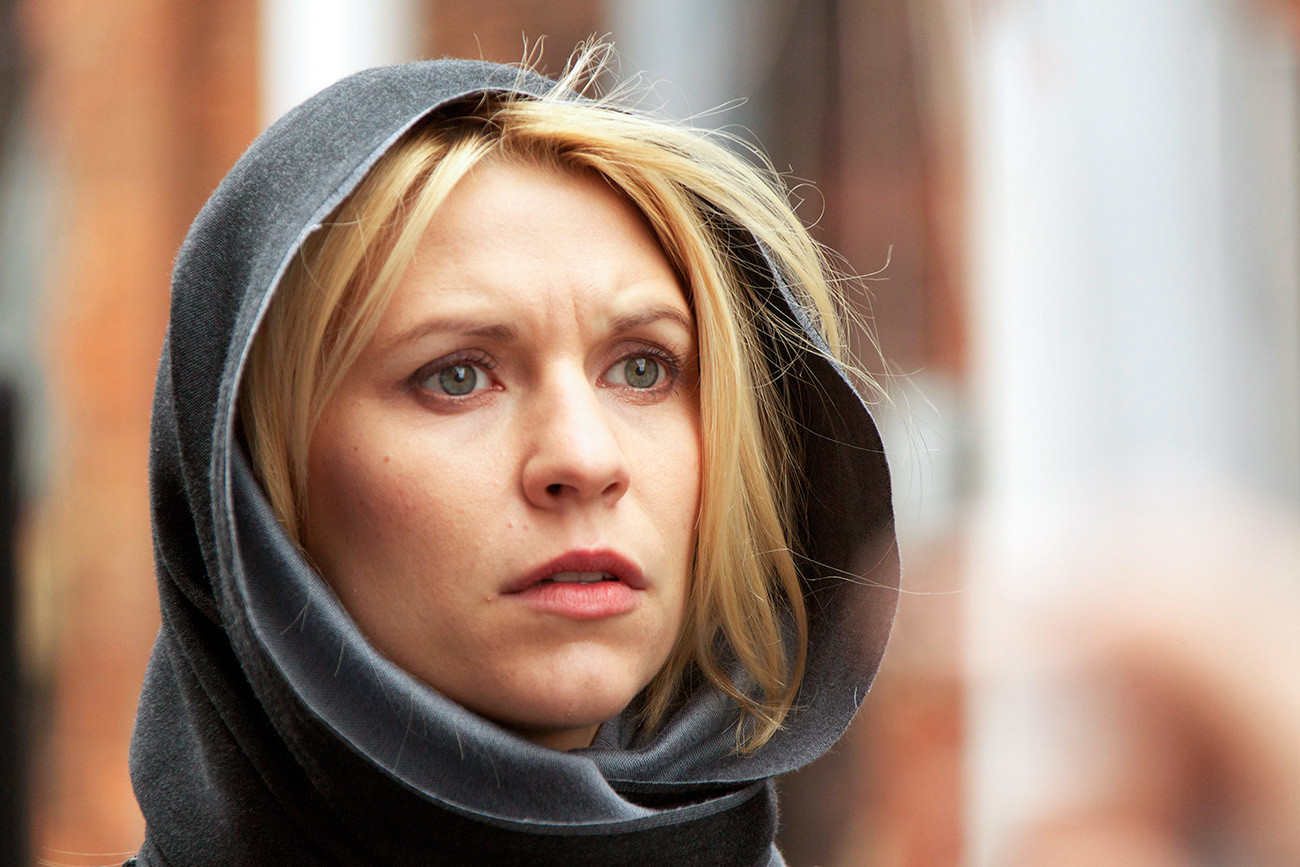
Homeland
ShowtimeTake the HBO show Homeland: leaving out the Russians for the time being, it chose to portray the Shiite Iran as in league with Sunni terrorists (!) even as - in real life - Iran was abiding by all the agreements it has with the United States - agreements that the Democrats (for whom HBO is one of the leading soft-power bullhorns) had wholeheartedly supported. That is to say nothing of the hundreds of mistaken impressions it promoted about Muslims as people.
You might also remember a little movie called Buffalo Soldiers, released in 2001 - days before the September 11 attacks - and then shelved for years because, well, Washington didn’t feel like it wanted to portray its military in a comedic light, goofing around and cooking heroin at a base in Cold War-era Germany. Interestingly, Black Hawk Down (released in March 2002) did not meet the same fate. It was billed as a story of heroism and camaraderie - the script lent itself to presenting American soldiers as brave young boys, picked off one by one by Somali guerillas. (The part where U.S. forces mowed down 3,000 Somalis, including civilians, is conveniently left out).
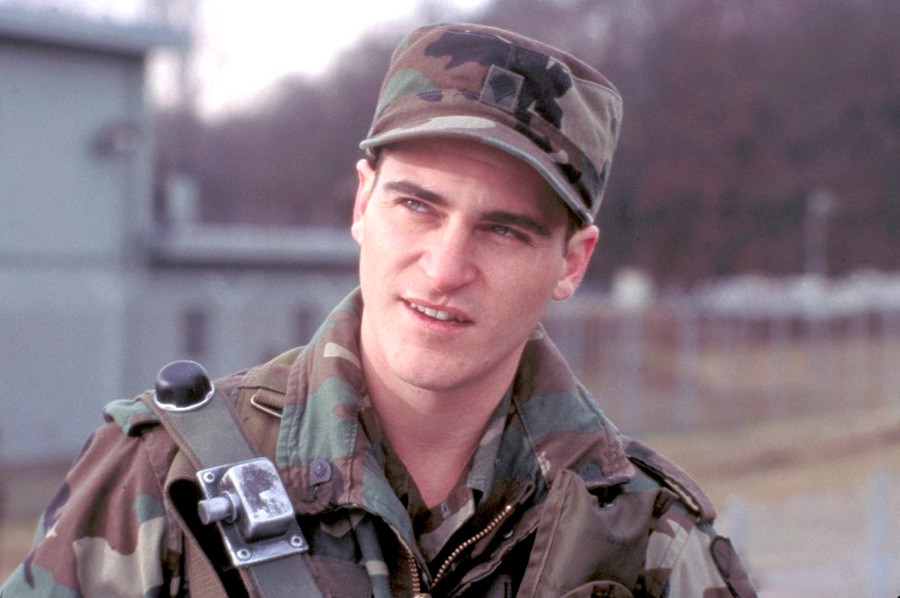
Buffalo Soldiers
Gregor Jordan/Odeon Film AG, 2001Our experience of mediated narratives has the ability to both draw us into a war and prepare us for what’s to come, sustaining a necessary anger in people until the time comes for supporting this or that political measure or attitude - or presidential candidate. It’s all about predicting, timing and steering.
What sets Hollywood’s Russians apart is that we’re not a genuine place or people. Hollywood Russians hardly exist in reality. We are, instead, a set of tropes. One could argue the same about Islam, but you’ll never see an American ‘Progressive’ stand up for Russia. It’s also far less dangerous to piss off a Russian - we’re not a religion, there’s nothing sacred about us that you can offend. And if someone does get offended - well… “it’s just a movie, man.” There are no advocacy groups to speak up for us. We’re politically safe to make fun of because - thanks to the reach of American foreign policy - we’re our only advocates.
I believe you don’t need a refresher course in every action movie of the last 50 years involving those bad guys - from the ridiculous Red Dawn (1984), in which the USSR invades the United States (and looks ridiculous while doing it), to Rambo III (1988), in which the “brave Mujahadeen” (who later turned into the Taliban) teamed up with Rambo against the evil Soviets, to about a dozen others - as well as the hundreds of subliminal and not-so-subliminal depictions of Russians as brutish, stupid, outclassed and outsmarted at every turn, with all their inhumanity and one-dimensional plans (think of the Russian gangster in Limitless with Bradley Cooper).
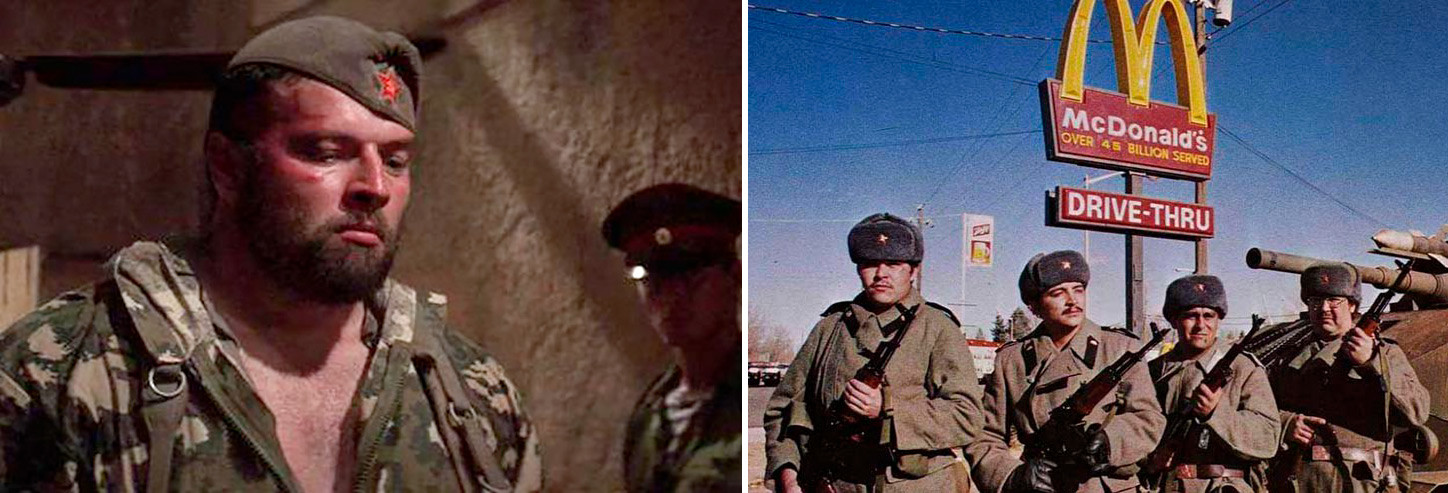
Rambo III, Red Dawn
John Milius/Metro-Goldwyn-Mayer,1984 ; Peter MacDonald/ Carolco Pictures,1988If Russians aren’t straight-up ‘evil’ or ‘stupid’, they are one of several other things: intense, fanatical, tragic, mysterious or otherwise hiding ulterior motives. It’s never a good look. And if the story is about an innocent Russian woman - the beautiful, fragile creature usually seeks to escape Russia for a better life, or evade her cruel KGB handlers by going rogue or working for the CIA.
You know what drives me up the wall though? It’s that - when push comes to shove - even the most esteemed ‘Russian scientist’ you might find in a Hollywood movie opts for fear, mercantilism, a betrayal of his country. Sometimes, all three. Even in the highly-esteemed HBO hit, Chernobyl (2019), the cleanup crews are constantly promised monetary rewards for doing something that living survivors of the tragedy know had needed to be done. Even when faced with imminent death, the Russians still want money for their troubles. Chernobyl survivors took a lot of offense to that. And rightfully so.
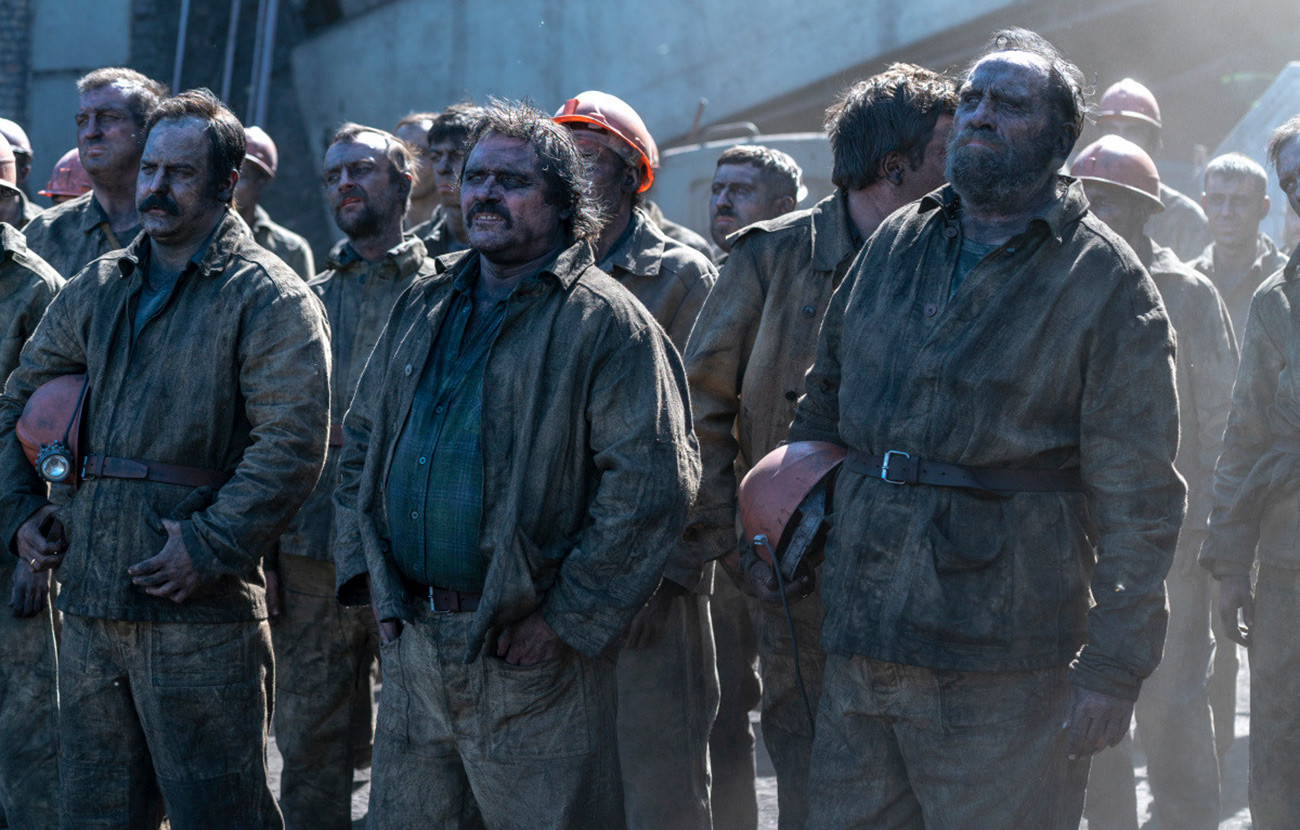
Chernobyl
HBO, 2019Let’s not forget the kidnapped Russian scientist in Netflix’s Stranger Things 3 - who won’t divulge state secrets to an American cop unless he gets him the cherry slurpee he asked for, instead of the strawberry one. Or the huge goon who strangles people with extreme cruelty.
Ask yourself: is this OK in the year 2019?
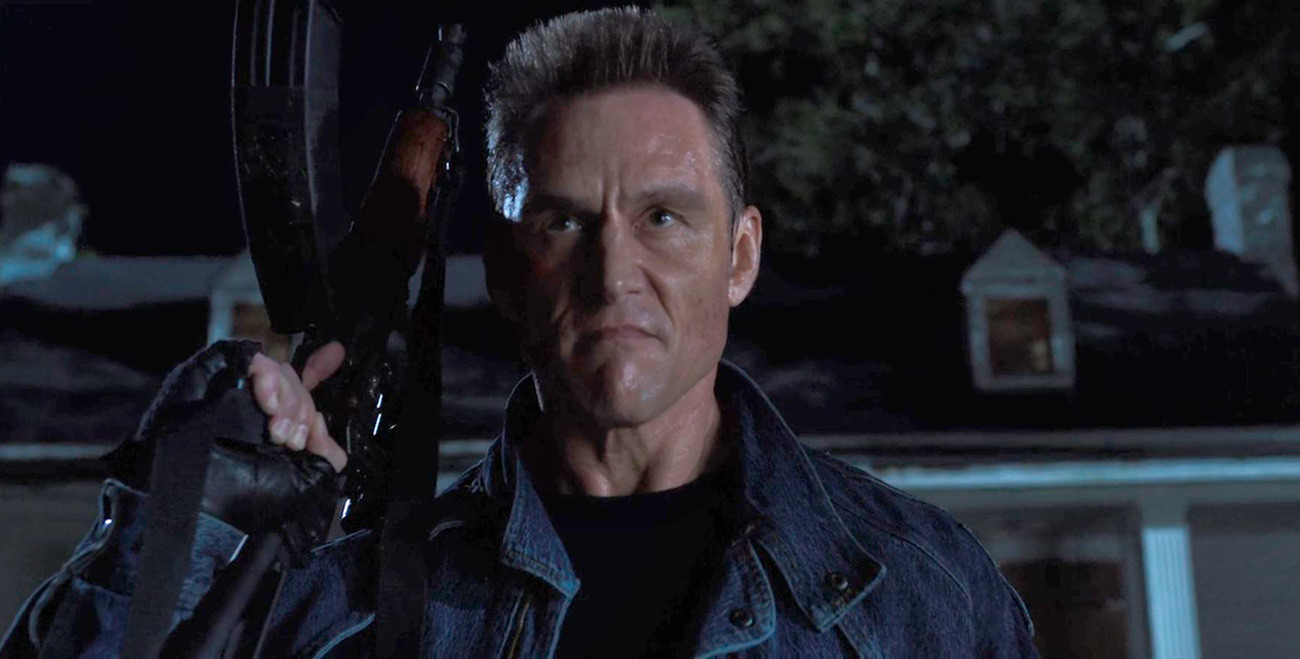
Stranger Things
NetflixThe usual answer to that is “You guys don’t get it! It’s a parody of the 80’s!”. So - what: because it’s parodying its own Cold War-era portrayals, that makes it somehow less demeaning to another culture?
The Cold War never ended. It’s worse than before: and in this day and age, the deepening crisis requires novel approaches that increasingly probe the depths of the viewer’s psyche, as opposed to playing around with superficial caricatures. You need to keep things fresh so that your audience doesn’t catch on and go “Wait a minute!”.
Don’t get me wrong. In post-2000 Hollywood, the Russians still drink vodka by the bucket (look at Angelina Jolie-fronted Salt, 2010). They are still driven by silly monolithic patriotism like robots (the oligarch from Jack Ryan: Shadow Recruit, 2014), and other no less ridiculous examples of ‘Russian’ behavior, from flagrant disregard for the lives of your own intelligence operatives, to treating women as subhumans.
Also, we have a strange habit of acting Germanic, because Americans believe it makes communists look more like “Nazis”: we deliver a lot of our phrases in this dumb, cold, matter-of-fact-like tone. Remember Charlotte Rampling in Red Sparrow (2018)? How about Cate Blanchett in Indiana Jones: Kingdom of the Crystal Skull (2008)?
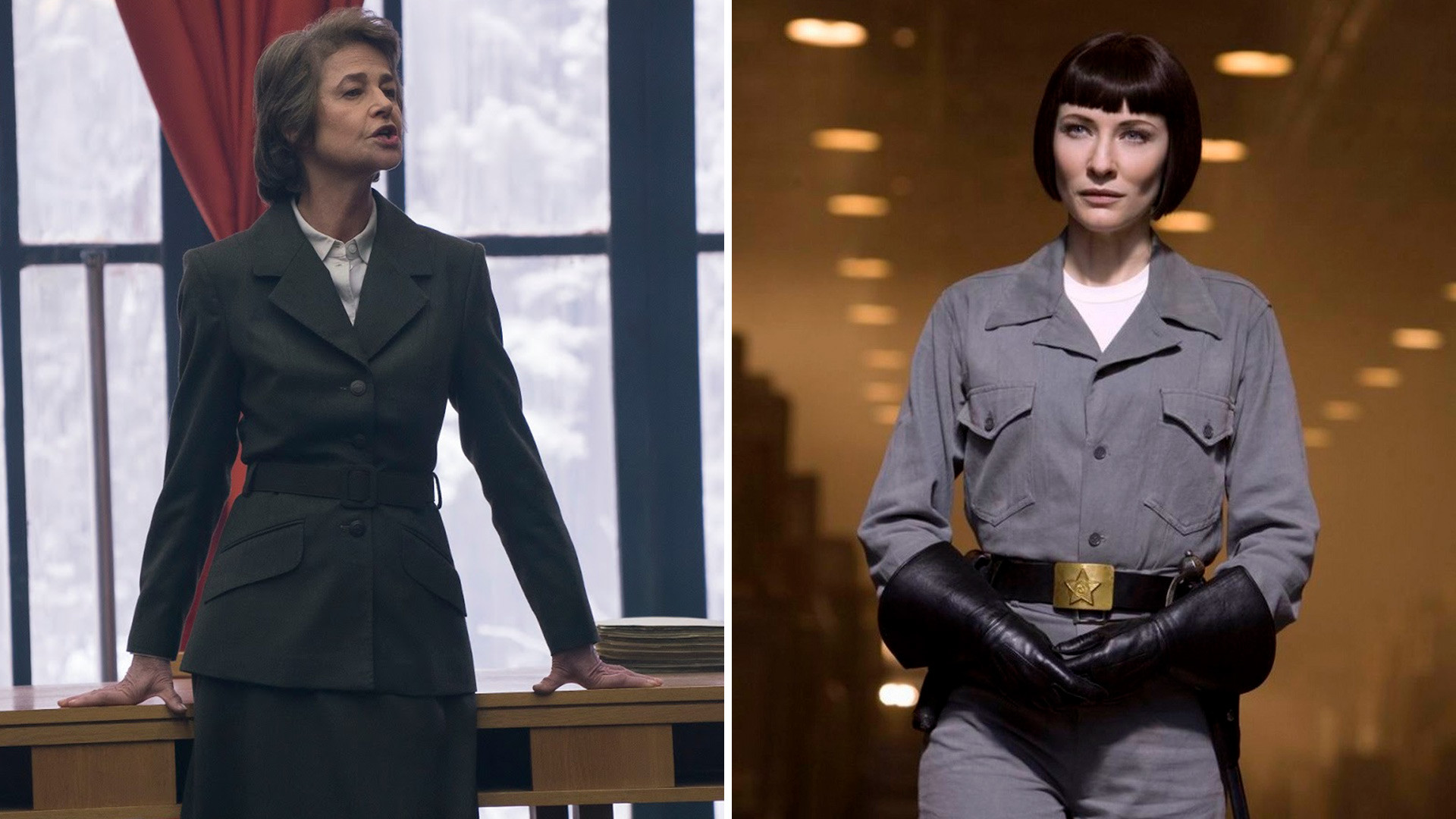
Red Sparrow, Indiana Jones: The Kingdom of the Crystal Skull
Francis Lawrence/20th Century Fox, 2018 ; Steven Spielberg/Paramount Pictures, 2008What I’d like to call attention to instead is the growing shift of the last five or so years toward making period pieces.
The 80s are coming back stronger than ever! On the surface, it’s all fun and comedy and Cyndi Lauper songs and hairspray and spandex and synthwave music. Underneath, it’s much more. Where Russians are concerned, the 80s hark back to the last time that the Soviet ‘bad guy’ was a useful stereotype. In our current time of heightened political tensions, Hollywood is shown to vigorously rely on those tropes: Stranger Things 3 and Glow (a show about 80s women’s wrestling) are notable examples.
The cleverness of it all doesn’t just lie in utilizing the 80s in order to hint at the view that present-day Vladimir Putin is a Cold War-era harbinger of Soviet expansionism (though that is undoubtedly a major piece of the puzzle). The new Hollywood 80s are peppered with an odd respect for Russians. It seems to hint at American indecisiveness about whether we’re strong or weak. They know that in this day and age you can no longer get away with cartoonish depictions, so a sort of admiration for Russia needs to be whisked into the mix. This appears to have led to experimentation with novel approaches - such as showing the efficacy and professionalism of the ruthless Russian intelligence services: Atomic Blonde (2017), and Anna (2019) can be added to the list of films I mention above. All of these contain an extremely professional KGB that is not to be trifled with.
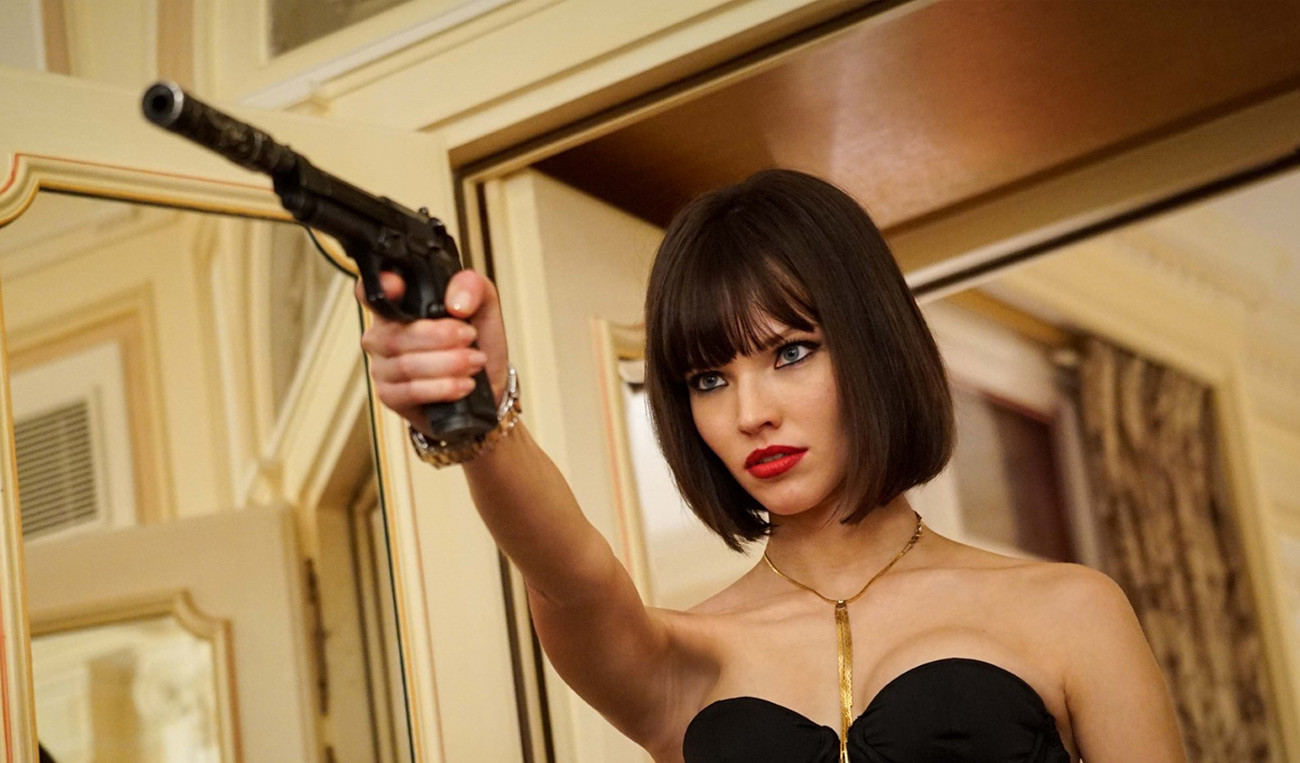
Anna
Luc Besson/EuropaCorp, 2019The Gerard Butler submarine shoot-em-up Hunter Killer (2018) deserves special attention: observe the respect toward Russian forces as not simply being trigger-happy communists, but level-headed professionals. By the end of it, you almost feel like saying “thank you?” that the Russians aren’t shown tripping over hazardous materials or discharging weapons by mistake. One of the them even commits the ultimate sacrifice. Wow, America… I can’t believe I’m saying this, but thank you.
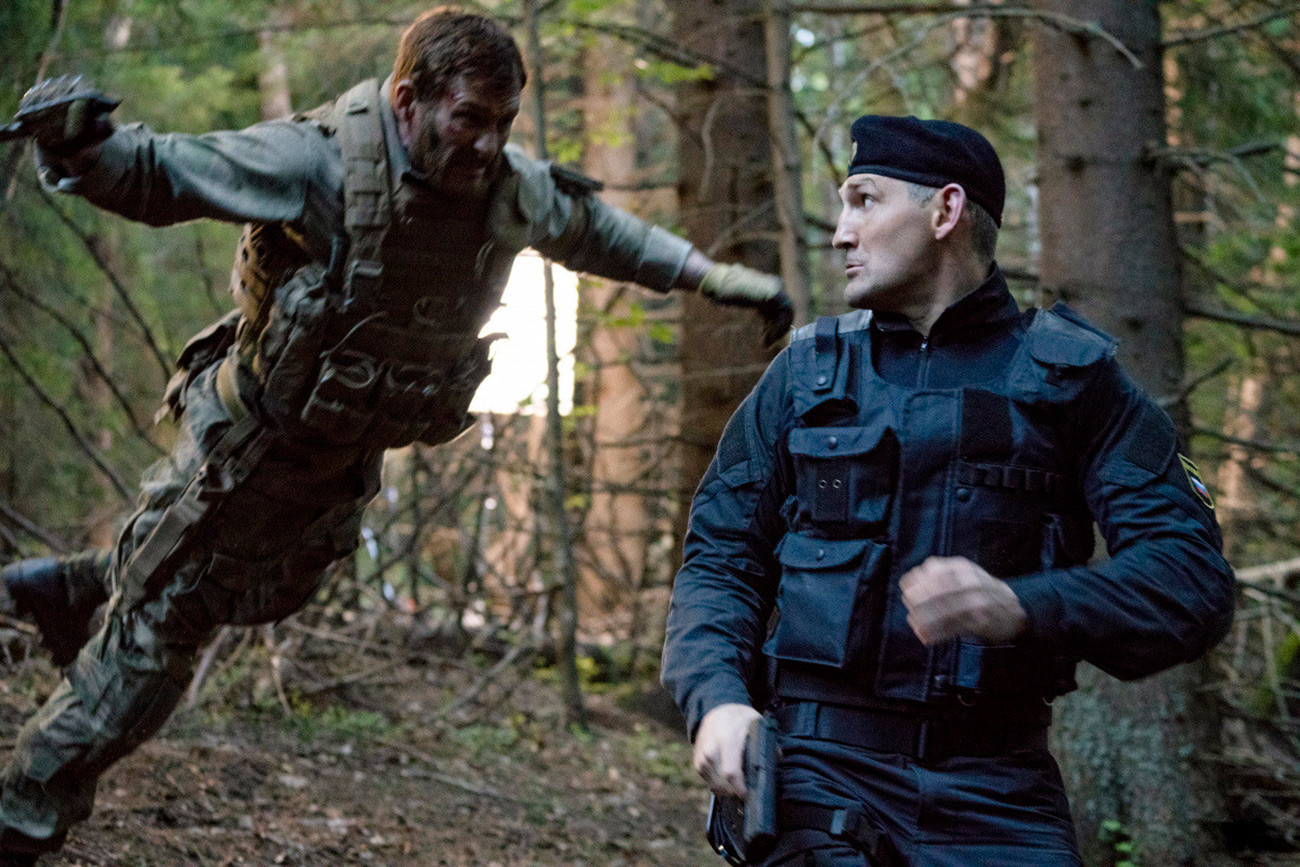
Hunter Killer
Donovan Marsh/Millennium Films, 2018Special thanks for all that goes to the Internet and to people’s increased ability to connect with foreign cultures and viewpoints. The world itself has become more connected. And even as Democrat voters in the U.S. are bombarded by their respective media with daily reminders that the Russians had allegedly hacked their election, you no longer see Moscow streets as eternally covered in snow. There are also no more stupid shots of the Kremlin with its red star up top; the stoicism of uniformed officers whose frames are hidden beneath thick winter coats have been reduced to a minimum, and so have the views of elderly women or poorly, downtrodden Russians. All of this hints at the fact that we’re not suffering robots, but real human beings.
But for the curious among us, it should also indicate that we’ve entered a new era of narrative-building, with new tricks, new approaches and nuances of storytelling. Remember: Russian inferiority, backwardness and global ambitions have still not been expelled. We just need to look deeper.
If you deny the primacy of international relations and history as an analytical tool in studying Hollywood, you deny the very reason Russians are still so prominent, and might as well continue living in fantasy land. It is when we study the evolution of that picture that things begin to take shape and true reasons are manifested. Because, of course, grudgingly admitting that the Russians aren’t complete morons is just not enough. The real proof that this hasn’t stopped happening is scattered everywhere - in Netflix scripts, in comedy, family movies and so on. All are full of allusions to Russia as an exotic place where everything is a bit upside down.
READ MORE: OPINION: Luc Besson’s ‘Anna’ portrays Russia so badly that it’s actually good
For one, the U.S. still treats Russia and Soviet Union as one country, which tells me that they’re not about to drop the idea of Vladimir Putin as attempting to create a second USSR. And this is the kind of evidence we should be looking for when analyzing each other’s film industries. Everything else is cosmetics. There’s no relaxation in international relations. We’re not “closer friends” than we were before. Everything is as it should be, because cinema is simply a mirror of what the most well-funded movie industry in the world would like to achieve for its national interests. Even Russians are no different. Or Indians. Or the Chinese. Washington just has more money, so its strategic thinking is much more ubiquitous and laid bare for all to see.
If using any of Russia Beyond's content, partly or in full, always provide an active hyperlink to the original material.
Subscribe
to our newsletter!
Get the week's best stories straight to your inbox